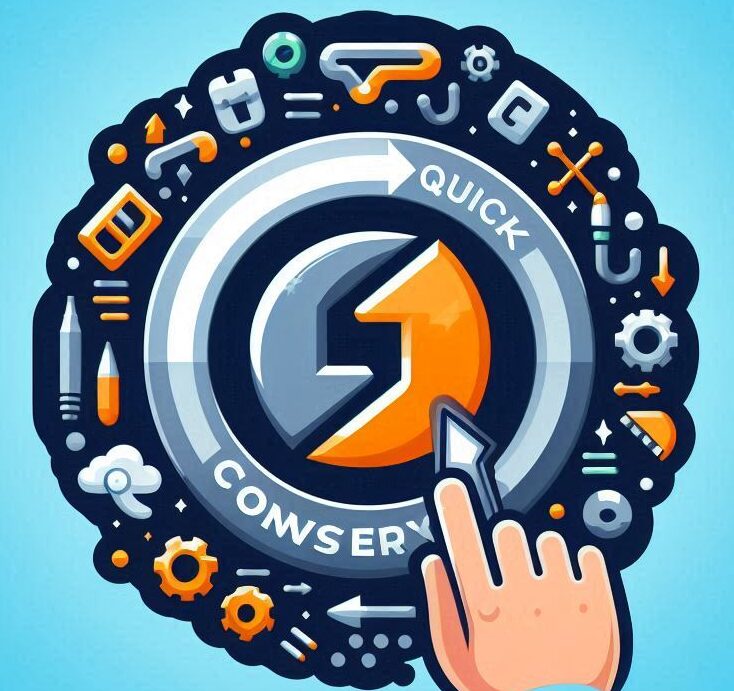🖼️ JPEG to JPG Converter 🚀
Free Online Image Optimizer & Compressor Tool
🔄 Universal Image Converter & Compressor ⚡
Drop your images here
or click to browse files
Convert Format
Compress Size
Quality
Processing…
✨ Conversion Results 🎉
⚡ Quick Conversion Tools 🛠️
JPEG to JPG
Convert JPEG to JPG format instantly
Compress to 20KB
Ultra compress JPEG to 20KB
Compress to 50KB
Compress JPEG to 50KB size
Compress to 100KB
Compress JPEG to 100KB size
PNG to JPEG
Convert PNG images to JPEG format
PDF to JPEG
Convert PDF pages to JPEG images
📖 About JPEG & JPG Formats 🔍
Learn everything about JPEG compression, conversion, and optimization for web and print media.
JPEG Full Form
JPEG stands for Joint Photographic Experts Group. It’s a commonly used method of lossy compression for digital images, particularly for photographs.
Key Features:
- Lossy compression algorithm
- Excellent for photographs
- Widely supported format
- Adjustable quality levels
JPEG vs JPG
JPEG and JPG are essentially the same format. The difference is purely in the file extension naming convention.
Why Two Extensions?
- .JPG: Legacy Windows 3-character limit
- .JPEG: Modern systems support longer names
- Same image data and quality
- Universally interchangeable
💡 Benefits of Image Compression 🚀
Faster Loading
Compressed images load faster on websites, improving user experience and SEO rankings.
Storage Savings
Reduce file sizes significantly while maintaining visual quality for efficient storage.
Mobile Friendly
Optimized images consume less bandwidth, perfect for mobile users and slow connections.
Best Practices for Web Images
For Web Use:
- Use JPEG for photographs
- Target 50-100KB for web images
- Quality 70-80% for best balance
- Optimize for mobile devices
For Print Use:
- Use higher quality (90-95%)
- Maintain higher resolution
- Consider uncompressed formats
- Test print quality before final use
❓ Frequently Asked Questions 💬
What’s the difference between JPEG and JPG?
There’s no difference in the actual image data or quality. JPEG and JPG are the same format with different file extensions. JPG was used due to Windows’ 3-character file extension limit, while JPEG is the full name.
How much can I compress a JPEG without losing quality?
You can typically compress a JPEG to about 70-80% quality without noticeable quality loss. For web use, 50-100KB is often optimal. Our tool lets you compress to specific sizes like 20KB, 50KB, or 100KB while maintaining the best possible quality.
Can I convert PNG to JPEG?
Yes! Our tool supports PNG to JPEG conversion. Note that PNG supports transparency while JPEG doesn’t, so transparent areas will be filled with a white background during conversion.
Is my data safe when using this tool?
Absolutely! All image processing happens directly in your browser. Your images are never uploaded to any server, ensuring complete privacy and security of your files.
What file formats are supported?
Our tool supports JPEG, JPG, PNG, WebP, and PDF files. You can convert between these formats and compress them to your desired size.
🔗 Related Tools & Resources 🛠️
Pregnancy Tracker
Track your pregnancy journey with our comprehensive pregnancy tracker tool.
Visit ToolAffirmation Cards
Discover awesome affirmation cards to boost your positivity and motivation.
Visit ToolSwitch Words Generator
Generate powerful switch words for manifestation and positive energy.
Visit ToolSwitch Words for Money
Ultimate tool for switch words related to money and financial abundance.
Visit ToolUPS Pension Calculator
Calculate your UPS pension benefits with our comprehensive calculator.
Visit ToolLucky Mobile Number
Find your lucky mobile number with our advanced numerology calculator.
Visit ToolAdditional Compression Tool
Need more compression options? Try our partner tool for ultra-compression.
Compress Image to 20KB
